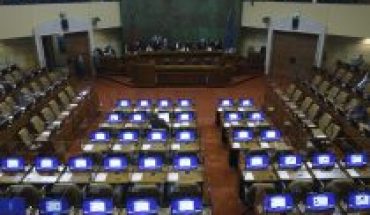
Senator Felipe Harboe Bascuñán in late March urged Banking with the phrase: “As Chile helped Banking in 1982, I would expect them to help their customers,” noting that Banking would propose debtors in this global mega economic crisis , to pass the delinquent fees of the money credits, to the last three instalments of the credit, at the rate of UF plus 2.7 interest, which it denounced as an insufficient model for this situation, in which the costs are still paid by the debtor what qualifies as a non-aid and then the following reflections arise.
Extrapolating economic economic economic conjunctutures, indeed, just as Banking received key financial support from the State in the economic crisis of 1982, of financial salvage, when Banking was technically bankrupt, through the mega-credits granted by the Bank Central, under the “subordinated debt” modality, in which banks paid long-term (20 years on average) to the extent that there were profits for the rescued banks and under that condition paid the debt to the Central Bank.
Now, indeed, bank customers, from small consumer credit debtors, working capital, home mortgages and SMEs in general, should receive from Banking, equally an exception treatment for the payment of their loans, in a economy in crisis, with unsuspected effects, which foreshadow that the coming scenario is that of a war economy and after post-war, once the pandemic of the crown virus is overcome.
Therefore, it would be reasonable for The Bank to review its business model and do its thing, providing the debtor with flexible instruments for the renegotiation of its debts in this context, in which many debtors are already without or with few liquidity flows for payment financial liabilities immediately; and so it seems reasonable that the alternative option or “liquidationist” model to fill the civil courts with preparatory efforts and demands for executive lawsuits to collect mutual money, with dubious payment results, hopefully not the model we will see in Execution.
As a result, Banking now has a tremendous challenge in its country-level business model, which is to reschedule its customers’ debts reasonably, with interest rates 0 and benign deadlines for an economy in crisis, all of which also impacts its quality of Portfolio. In addition, not to forget that the payment of the tax to the mutual or credit transactions of money at a rate 0 between April and until The month of September of this year, on the initiative of the Ministry of Finance, has been suspended, just to assist financial debtors , already approved by Law No. 21.255.
There is no doubt that the treatment and model that Banking assumes in this economic scenario, in front of its debtors will impact on its quality of its portfolios and possibly its liquidity and risk classification, and especially on its image and reputation as an industry , being an equation that requires ‘to bring all these elements at stake and for this new treatment policy to become a reality, and for this it is essential to intervene by the sectoral authorities Ministry of Finance, Commission for the Market Financial body as regulatory and auditing banking and financial institutions and the technical opinion of the bank of banks, the Central Bank.
In this context, the IMF and the World Bank on 25 March have jointly urged creditors of the poorest countries, 72 economies, to suspend payments with creditors, to address the virus crown problem and the global economy to be halted and domestically, globally.
It seems reasonable and equitable that Banking now makes its key contribution, and places its technical and financial capabilities, at the service of clients at the country level, who in the face of an exception treatment consisting of soft renegotiations, hopefully with 0 interest rate and rescheduling payment terms, delinquent interest forgiveness and collection costs, until the domestic economy returns to its productive capacity for employment and growth and thus receives the treatment expected by those who need it now, will be favorably valued with beneficial effects for our economy. The optimity for equality before the law and of treatment is that the policy of banking is the same for all its customers at the country level, thus avoiding the existence of an unequal market of offers.
Law No. 21.255, which authorizes the Ministry of Finance to increase the share capital of the State Bank, receiving a capital increase of US$ 500,000,000, was also enacted, from public treasury assets, to go precisely to aid in the refinancing smEs. Now is the time for Private Banking to speak clearly, focusing its risk analysis on helping the debtor and not liquidating it, to hear a voice that the debtor will know how to value as a sign of a gesture of a new deal and to maintain the assets and ventures of its clients , and at the same time this new policy of refinancing credits will legitimize Banking in the country.
In short, the State has initiated a process of implementing economic measures to be in support of small and medium-sized debtors, lowering the stamp and stamp tax rate to 0 and increasing the capital of the State Bank to help financially SMEs and will need to continue to seek social and economic incentives and subsidies, now it is time for Banking to speak.
The content poured into this opinion column is the sole responsibility of its author, and does not necessarily reflect the editorial line or position of El Mostrador.





